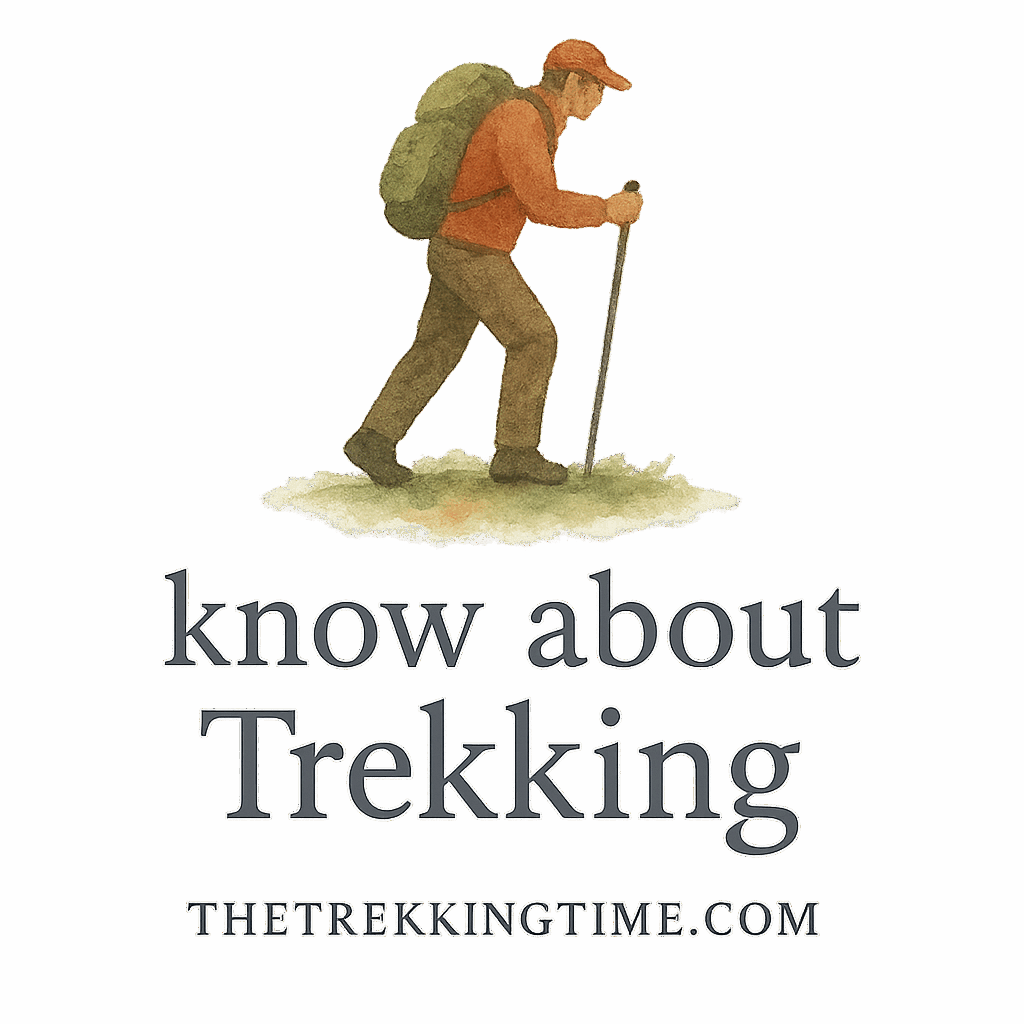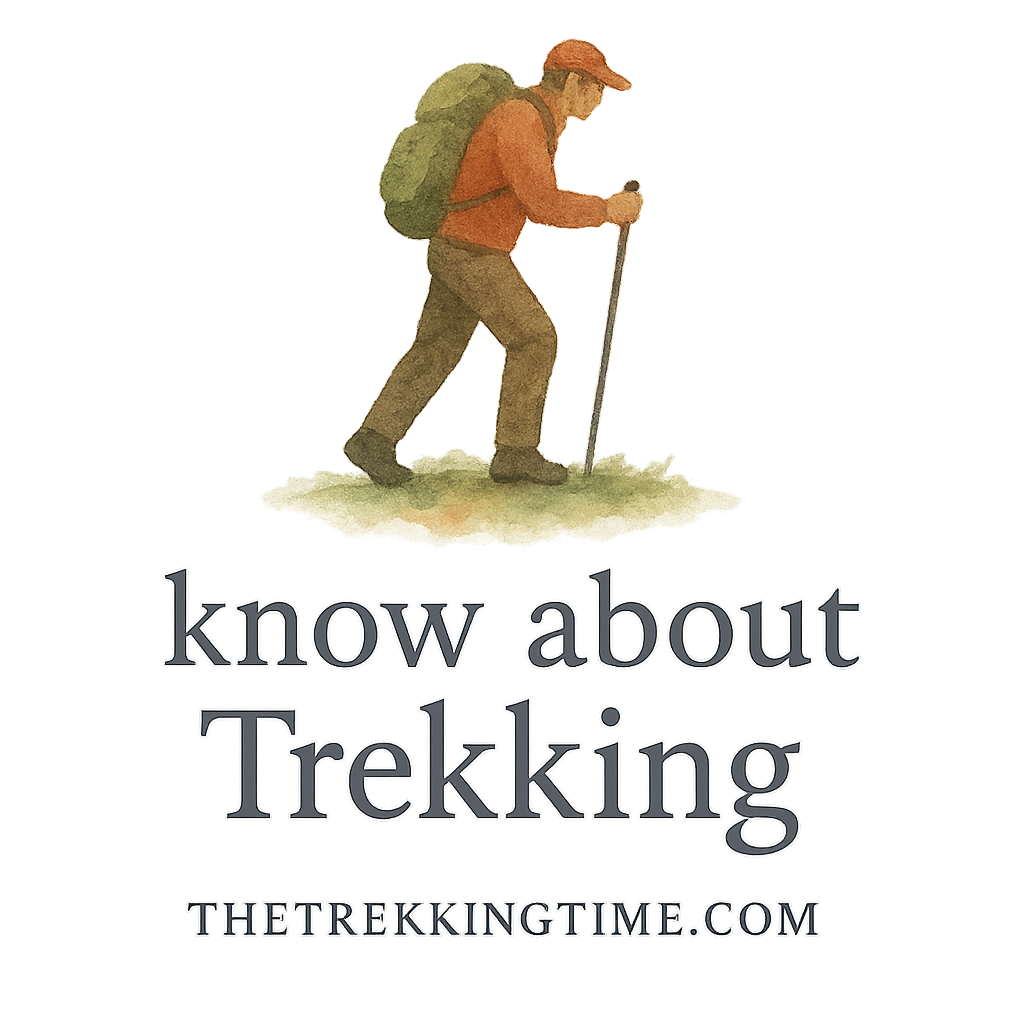Whether you’re hiking a remote mountain range or trekking your favorite weekend trail, having the right gadgets can completely transform your experience. Let’s dive into the top 10 trekking gadgets that not only make trails easier but also significantly safer for every adventurer.
Why Trekking Gadgets Matter
Enhancing Safety and Convenience
Gone are the days when a paper map and a flashlight were all you needed. Today’s trekking tools offer safety, efficiency, and peace of mind. From GPS devices to smartwatches, these gadgets help you navigate difficult terrains, stay connected, and even monitor your health in real-time.
The Role of Technology in Outdoor Adventures
Modern trekking isn’t just about walking through nature—it’s about doing it smarter. By integrating technology into your treks, you can improve your physical performance, make informed decisions, and stay safe in unpredictable environments. And if you’re just getting started, check out our Trekking Basics guide for all you need to know before hitting the trails.
Must-Have Trekking Gadgets for Every Trail
1. GPS Navigation Devices
Why They’re Essential
Getting lost in the wild is a genuine concern. A GPS device can pinpoint your exact location and guide you safely—even without a mobile signal.
Top Features to Look For
Look for waterproofing, long battery life, preloaded topographic maps, and real-time tracking. Popular picks include the Garmin eTrex and GPSMAP series.
Internal Link: Trekking Destinations often require reliable navigation—don’t overlook this tool.
2. Portable Water Purifiers
Staying Hydrated Without Worry
Waterborne diseases can ruin any trek. Portable purifiers allow you to safely drink from streams and rivers.
Popular Choices Among Hikers
Lifestraw and Sawyer Mini are lightweight, efficient, and affordable. Some gadgets even purify with UV light for extra safety.
Internal Tag: Learn more about staying fit and safe on trails at Trekking Fitness Prep.
3. Trekking Poles with Shock Absorption
Added Stability and Comfort
Smart trekking poles reduce impact on your knees, help with balance on rough terrain, and make uphill climbs less brutal.
Choosing the Right Pair
Go for carbon fiber poles with adjustable heights and ergonomic grips. Brands like Black Diamond and Leki lead the pack.
Tag It: #Performance and #Hiker essentials.

4. Emergency Satellite Communicators
Stay Connected Off-Grid
These devices let you send SOS signals or short messages even without mobile coverage—ideal for remote treks.
Peace of Mind in Remote Areas
Garmin inReach and ZOLEO are excellent options. Always pair them with a Trekking Safety strategy for added protection.
5. Multi-Functional Headlamps
Hands-Free Visibility
When darkness falls, your headlamp becomes your best friend. Choose one with red light mode and adjustable brightness.
Battery Efficiency Tips
Opt for rechargeable models and carry a spare power bank. You’ll thank yourself on a multi-day trek.
Link Tip: #Rules and trail etiquette start with visibility and preparedness.
6. Solar Chargers and Power Banks
Keeping Your Gear Juiced Up
No electricity? No problem. Solar chargers keep your phone, GPS, and lights alive, especially on long trails.
Best Options for Trekkers
Anker, Goal Zero, and BioLite offer rugged, efficient models tailored for the outdoors.
Tech lovers? Explore more Gadget-Friendly Routes.
7. Smart Trekking Watches
Tracking Your Trail Data
Smartwatches provide altimeter, barometer, GPS tracking, and heart rate monitoring—all on your wrist.
Health and Altitude Monitoring
Garmin Fenix and Suunto watches help you track your vitals and performance, perfect for high-altitude #Mountains.
8. Compact First Aid Kits with Smart Features
More Than Just Bandages
Today’s kits come with digital temperature readers, emergency blankets, and QR codes for instant first-aid instructions.
What Every Kit Should Include
Antiseptic wipes, band-aids, tweezers, pain relievers, allergy meds, and a CPR mask.
Health-first mindset? Dive into #Wellness and #Mental Health for trekkers.
9. Lightweight Emergency Shelters
Instant Protection in the Wild
Weather can change fast. Emergency shelters offer protection from cold, rain, and even wildlife.
Materials and Packing Considerations
Choose a reflective, compact model that fits in your daypack. SOL Bivvy and MSR shelters are solid picks.
More on handling #Difficult trail moments with the right gear.
10. High-Tech Trekking Backpacks
Built-In Features for Modern Hikers
New-age backpacks come with hydration systems, solar panels, USB ports, load sensors, and anti-theft zippers.
Smart Load Distribution and Comfort
Look for padded hip belts, adjustable straps, and ventilation panels. Osprey and Deuter offer tech-savvy models.
Linked Resource: Our Trekking Gear & Packing Guide breaks it down even further.
How to Choose the Right Gadget for Your Trek
Match Gadgets to Your Trail Type
You don’t need everything for every hike. A casual day hike might need just a GPS and headlamp, while Himalayan expeditions call for the full arsenal. Check out #Himalayas for inspiration.
Budgeting Smartly Without Compromising Safety
Don’t break the bank—prioritize based on your needs. Start with safety gadgets first (GPS, first aid, shelter) and expand from there.
Final Thoughts on Trekking Tech
Technology is not a crutch—it’s a companion. When used smartly, it empowers you to trek longer, climb higher, and explore further with confidence. From essentials like navigation to bonus gadgets like solar power, each item on this list can be your silent trail partner.
So before your next adventure, take a moment to check your gear and ask: Am I hiking smart, or just hiking?
Conclusion
Trekking is about freedom, exploration, and self-discovery. But it’s also about responsibility. The right gadgets not only protect you—they enhance your overall experience. From GPS devices to solar chargers, investing in the right tools is a decision you’ll thank yourself for. Equip yourself, plan ahead, and make every trek a safe and memorable one. Ready to hit the trail? Visit The Trekking Time to explore more guides, gear tips, and destination ideas.
FAQs
1. What’s the most important trekking gadget to carry?
A GPS or emergency communication device—safety comes first.
2. Are solar chargers reliable for multi-day treks?
Yes, especially in sunny climates. Pair them with a good power bank.
3. Can smartwatches replace GPS devices?
Not entirely. Watches are great for quick data, but standalone GPS units are more robust.
4. What’s the best way to pack tech gadgets?
Use dry bags or waterproof compartments in your backpack to protect them.
5. Do I need all 10 gadgets for every trek?
No, tailor your gear to your trail and trip duration.
6. Are trekking gadgets expensive?
Some are, but many reliable tools are available at budget-friendly prices.
7. Where can I learn more about trekking safety and gear?
Explore The Trekking Time Safety Tips and Gear Guide sections for more insights.


